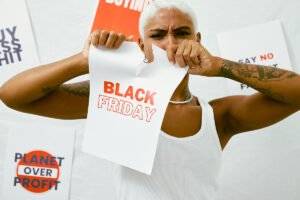July 14, 2016, Inter Press Service
Critics both within and outside the United Nations bureaucracy are criticizing member nations with weak human rights records for denying key non-governmental organizations (NGOs) a role in UN deliberations. Stavros Lambrinidis, EU Special Representative for Human Rights, is quoted in the IPS Press article as saying
“Governments do not need to agree to everything civil society said, but they are obliged to at least guarantee their freedom and listen.”
One way for an NGO to exert influence is to receive consultative status at the United Nations, a privilege bestowed by the UN’s Economic and Social Council (ECOSOC), one of the six principal UN organs established in the 1945 UN Charter.
According to its website, ECOSOC is the UN’s “central platform for fostering debate and innovative thinking, forging consensus on ways forward, and coordinating efforts to achieve internationally agreed goals.” However, as Philip Kaeding reports for Inter Press Service, NGOs “are concerned about declining possibilities for participation.”
Of the more than 10 million NGOs at work in the world, some 4,500 organizations have this special access to the UN’s global political process. Unfortunately, key organizations are being resisted, and their conspicuous absence gives rise to the sentiment that “many civil society actors feel their influence is shrinking.”
This tension coincides with the need for civil society organizations (CSOs) to help implement the UN’s Sustainable Development Goals (SDGs). The SDGs replaced and expanded on the Millennium Development Goals (MDGs) in January 2016. The SDGs represent a primary international mechanism for guiding development in all UN member states until 2030. Governments enthusiastically acknowledge they need the involvement of civil society to help them focus on human rights, social justice, environmental sustainability, and the exclusion of marginal populations. “The State of Civil Society Report 2016,” published by Civicus this June, addresses this need in depth. Nevertheless, UN member nations reveal their true intentions by denying consultative status to worthy NGOs.
With the SDGs decided, the debates turn now to discussing the roles and responsibilities of all stakeholders in implementing the goals. Particular attention is given to how best to deploy this universal framework at the local level. Civil society organizations have the local knowledge required to ensure accountability and service delivery.
Sign up for our free newsletters
Subscribe to NPQ's newsletters to have our top stories delivered directly to your inbox.
By signing up, you agree to our privacy policy and terms of use, and to receive messages from NPQ and our partners.
One such vital actor is the International Disability Alliance (IDA) representing over 1,100 organizations of persons with disabilities and their families. IDA is responsible for The Convention on the Rights of Persons with Disabilities (CRPD), the fastest ratified human rights treaty in history, requiring nations to include representatives of persons with disabilities in all programs relating to them, echoing the disability rights movement’s call for “nothing about us, without us.” If only this convention applied to IDA:
Eighty percent of persons with disabilities live in developing countries and have won a hard-fought role in designing and overseeing the Sustainable Development Goals (SDGs) at the United Nations. But they are still being left out of development policies and programmes by governments within their own countries.
“Persons with disabilities were left out of the Millennium Development Goals. If we are excluded by governments now, the SDGs will leave us behind again.”—Colin Allen, Chair of the International Disability Alliance
The Committee to Protect Journalists (CPJ) “promotes press freedom worldwide,” meaning that CPJ defends hundreds of journalists who are attacked, imprisoned, and too often killed each year. CPJ needs consultative status to access UN bodies and processes, especially the Human Rights Council in Geneva, to accomplish its work. CPJ first submitted its application in 2012. It was deferred seven times until May of this year, when the application was finally denied. The application process itself is straightforward. Getting countries with abysmal press freedom records to vote in CPJ’s favor is the challenge. “The decision was widely criticized and even Ban Ki-Moon said that ‘freedom is under threat, including at the last place this should happen: at the United Nations.’”
Amnesty International’s Secretary General, Salil Shetty, adds his criticism:
The ECOSOC accreditation process is simply shameful. […] Not many people come to international meetings after all…the majority of the people are out there and you would have thought that that’s the place where the UN would stand up and speak up for the people. Unfortunately, that is very rarely the case.
While NPQ has long observed threats to the independence of civil society organizations in the countries where they operate, such as in Russia, China and Egypt, it is especially troubling that the UN would exclude some of them from participation at a time when the UN needs them to help implement the SDGs. By insisting on a transparent and inclusive process for the involvement of the world’s civil society organizations, the UN will benefit from their unique ability to adapt, extend, update, and localize the SDGs.—James Schaffer











